For some of us, the word “fragrance” brings all kinds of good feels. From luxe perfumes to luscious body oils, there is no denying that smelling like a goddess can make us feel on top of our game. However, if you care about your ingredient list and your health, it might be worth second-guessing those scents you’ve come to know and love. And while we know that the word “fragrance” may seem harmless, there are certainly instances where it isn’t so innocent. We’re talking harsh chemicals, bad health repercussions, and overall, very unfavorable side effects. Luckily for you babe, you’ve got us. And we have all of the tea on what “fragrance” really means.

Simply put…
Fragrance can mean a lot of different things. In this context though, the word “fragrance” is often defined as the chemicals that are put into a product to give it a specific scent. Not so dreamy when you spell it out that way, right? However, the reality is that fragrance can be found in a ton of products you have laying around the house. From your go-to cosmetics to those cleaning products you always count on, fragrance is absolutely everywhere.
We should also mention that although fragrance is often artificial, it can indeed be natural as well. Many companies use organic ingredients to bring a bit of scent to their products, and there is nothing inherently wrong with that. These good guys aside though, you still need to know all about what “fragrance” really means in most cases.
Fragrance isn’t as transparent as you think.
It might go on clear and unnoticed, but fragrance certainly isn’t as transparent as you would think. In fact, despite its harmless appearance, this word is on the mind of health-conscious beauty junkies everywhere – and for good reason.
Here is where this whole fragrance thing gets a little shady. Brands and companies are able to use the word “fragrance” as a blanket ingredient to mask a slew of other chemicals they are actually including in their products. In fact, the Environmental Working Group (EWG) has asserted that the average fragrance contains approximately 14 chemicals that are not even listed on the product’s label. Due to the lack of testing on these unknown chemicals, their long-term risk is also unknown. Talk about a loophole, right?

Not only does this mean you’re not privy to all of what is actually inside of your products, but it also gives companies an opportunity to pack their items with toxic ingredients – without having to disclose what any of them are. This is disappointing, to say the least. Moreover, the most troublesome part of it all is that so many buyers have no clue that this is even a thing. At this point, you might be asking yourself how this type of “lying by omission” is even possible or legal. Well, we wondered the same thing, friend.
How companies get away with using the "fragrance" trick...
Let us break this down further. Under the Fair Package and Labeling Act (1966), fragrances are considered a trade secret. You know, so that other companies can’t go and replicate those signature scents that make so many products unique. This means that brands do not have to break down the chemicals their fragrances are comprised of (because that would give away the secret!). On top of that, it means that they can totally get away with sneaking nasties into their products that you wouldn’t otherwise be down for.
Honestly, we thought this was *a lot* to digest. But you know us and we love our research, so we kept digging to find out more about what fragrance really means.
The health concerns that the word “fragrance” triggers…
There’s a reason why we are so skeptical about this whole fragrance thing. It’s because despite how good something might smell, it can be seriously detrimental to your health. And as you probably already know, we *so* cannot get behind anything like that. Beauty should be healthy, and you shouldn’t have to risk suffering from negative side effects just to use your favorite cosmetics.
When it comes to fragrance, those side effects we just mentioned can range from mild to, well, not so mild. We hate to give you a laundry list but for ease of reference, here are the many negative health effects that fragrance has been linked to:
- Migraines
- Asthma attacks
- Allergic reactions
- Hormone disruption
- Skin irritation
- Certain forms of cancer
As you can see, the repercussions of using fragrance are worrisome to say the least. And honestly, it is best (and safest) to steer clear of this tricky ingredient. Especially given the fact that you will likely never know exactly what other chemicals it is masking, either. Additionally, you should be weary of brands that are using the “fragrance” term without further explanations on what their scent is actually composed of. Basically, the question you should ask yourself is “what are they trying to hide”. Because as it turns out, the answer is a lot.
What are phthalates?
We know, we know. How do you even pronounce “phthalates”? We had to sound it out, no joke. More importantly though, why should you really care about them? Hang tight babe, we’re about to tell you exactly why.
Phthalates are commonly known as chemicals used to make plastics more durable. You might be surprised to learn that these guys can be found in a slew of personal-care products instead of stuff like I don’t know, Tupperware? It’s true. They can be found in vinyl flooring and as you’ve probably already guessed, in a *ton* of fragrance too.

The health impacts of phthalates are, well, not so cute. Health issues such as asthma, attention-deficit disorder, diabetes, and breast cancer have all been linked to this nasty ingredient. On top of that, phthalates act as significant hormone disruptors. This means that they can affect your fertility and hurt your immune function, too. You should also know that phthalates are often used as gelling agents. Meaning, your go-to shampoo likely contains this questionable ingredient as well. So the next time you’re perusing your cosmetic labels, don’t forget to take a look at your go-to shower products as well.
How you can avoid them...
So, how can you avoid this unwelcome ingredient? The answer is tricky, babe. Unfortunately, phthalates live their lives in a *super* undercover way. As in, they are often masked under the vague veil of “fragrance”. Essentially, you would never even know about these culprits unless you did your research (or conveniently read this article). And, you would never assume that the product you were getting clean with contained all of these not-so-favorable ingredients.
As we previously mentioned in this article, the easiest way to avoid coming in contact with phthalates and other questionable chemicals is to pass on products that list “fragrance” as one of the many ingredients on their label. Unless a brand provides a breakdown of what is in their fragrance, be a skeptical girlfriend. Around here, we would rather be safe than sorry if you know what we mean.
Ready to ditch those nasty fragrance tricks once and for all?

We thought so too, babe. It is no wonder why this vague term could fool even the most clever of beauty junkies. I mean, who would have thought that such an innocent word could be hiding so much? Moreover, who would have thought that this was even allowed or legal? We enjoyed researching it all but more importantly, we loved sharing what we uncovered with you.
Now that you know what “fragrance” really means and what it can actually hide, spread the word. So many babes have no idea that this is even a thing! Oh and, the next time that you’re getting ready to pick up a new product, consider scrutinizing the label. We’re your besties in beauty, and we would never play you like that.
Love & Facts,
Carey <3
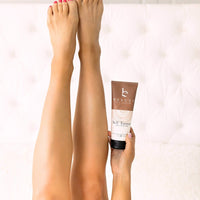








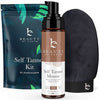

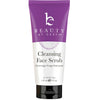


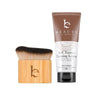











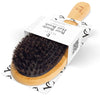
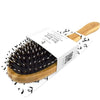
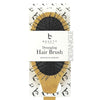
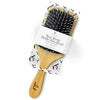
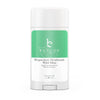


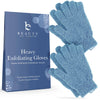
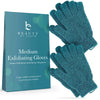
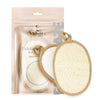


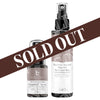





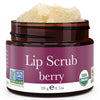
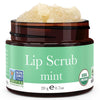
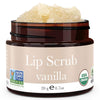





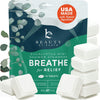
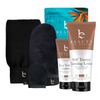
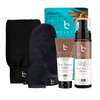


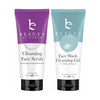
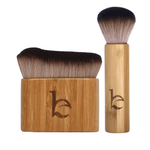
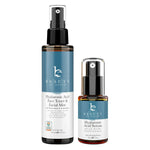



















join the conversation